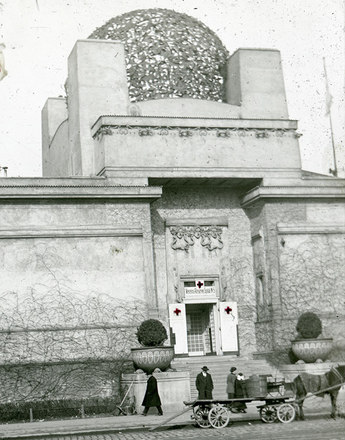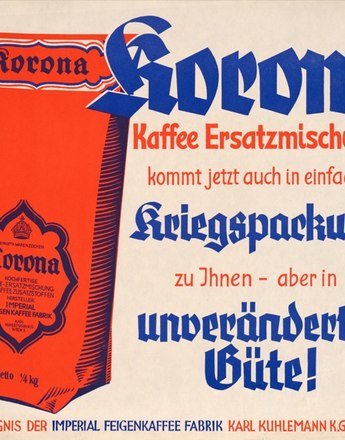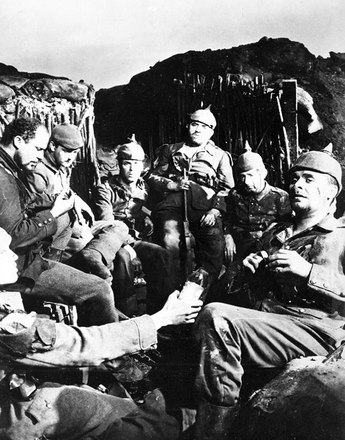Melancholy Men in Uniform – How Masculinity Becomes a Problem

Joseph Roth in training in the one-year voluntary school of the 21st Rifleman’s Battalion, detail from a photograph, 1916
Copyright: Dokumentationsstelle Literaturhaus Wien
Partner: Dokumentationsstelle für neuere österreichische Literatur im Literaturhaus Wien – Documentation Centre for Modern Austrian Literature
In his novel Die Kapuzinergruft (The Capuchins’ Crypt, published in English as The Emperor’s Tomb) (1938) Joseph Roth formulates a literary diagnosis of the superficial and foolish profile of soldiers from Vienna, the city of the waltz: ‘They were all too spoiled in Vienna, this city fed incessantly by the crown lands of the Monarchy, these harmless, almost ridiculously harmless, children of the capital and imperial residence, pampered and sung about much too often.’
In Austrian literature on the First World War there are frequent representations of such a fragile, vulnerable, gentle manliness in officers and soldiers who have an ambivalent attitude towards power, domination and violence and who do not feel at ease in their military existence. Often are they the losers in a game in which they really should have been the winners. They suffer and mourn for the world, but it cannot be denied that they gain a certain amount of pleasure from these feelings.
Joseph Roth’s novel Radetzkymarsch (Radetzky March) (1932) shows a lonely, weak, melancholy officer for whom women represent an alternative to military discipline and the monotony of life in the barracks. In this he is not really different from the other officers; they are weak, immoral, sociable types who move between the mess, the café and the brothel and give the impression of being ‘merely the careless wearers of their uniforms’. Taking part in the Great War is presented as a declaration of bankruptcy for military manliness. Carl Joseph von Trotta, the grandson of the hero of Solferino, is a weak, resigned, strongly emotional character who dies an unheroic death – ‘peacefully’, ‘not with a weapon in his hand’, as it were, but with two buckets with water in them which he wants to take to his soldiers. Such questionable male images are also characteristic of other novels by Joseph Roth, for instance Tarabas (1934), whose protagonist, one of the bravest officers in his regiment, gradually loses his military manner. The tough masculinity of the officer who behaves like a war god turns out to be a fictitious ‘substance’, a kind of masquerade, a lie: ‘In reality he was never a hero.’
A metamorphosis undergone by a soldier who is proud of being fit to serve is also shown in a novel by another Austrian writer, Ein Kind unserer Zeit (A Child of Our Time) (1928) by Ödön von Horváth. The transformation is triggered by being wounded and leads to the realisation that soldiers are simply ‘liars’, ‘wretched robbers’ and ‘cowardly murderers’: ‘What a liar I was! For sure! A cowardly liar – because after all it’s an easy way out to have the fatherland cover up the atrocities you’ve committed, as if that provided a white coat of innocence.’ Rudolf Jeremias Kreutz’s novel Die grosse Phrase (The Great Phrase) (1932), which shows the development of the protagonist and was composed in the immediate context of the war, presents the growing resistance of a man who was initially infected with enthusiasm for the war. The supposedly ‘beautiful’ and ‘adventurous’ war turns out to be a school of horror and of unbearable stress and strain which the officer with his tendency towards sentimentality and tenderness is simply not up to. He starts to dream, brood and fantasize, and thus it is shown that turning dreamers into heroes is an undertaking without any chance of success. After being wounded the protagonist develops into a passionate pacifist.
Translation: Leigh Bailey
Forster, Edgar J.: Unmännliche Männlichkeit. Melancholie – „Geschlecht“ – Verausgabung, Wien/Köln/Weimar 1998
Margetts, John: Die Vorstellung von Männlichkeit in Joseph Roths Radetzkymarsch, in: Stillmark, Alexander (Hrsg.): Joseph Roth. Der Sieg über die Zeit. Londoner Symposium, Stuttgart 1996, 79-93
-
Chapters
- Dreamers Who Turn into Heroes
- ‘Warriors on the Frozen Front’ – The War in the Alps as a Test of Manly Strengths
- The War as a ‘Technoromantic Adventure’
- Forms of Masculinity – Hierarchies, Rivals, Competitors
- Melancholy Men in Uniform – How Masculinity Becomes a Problem
- ‘Black Decay’ – Soldiers as Victims
- ‘The Flight Without End’? – The Warrior’s Homecoming
- ‘A New Race of Men’? – Ideologies of Masculinity in Post-War Austria





